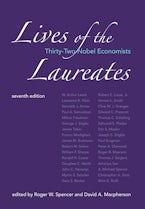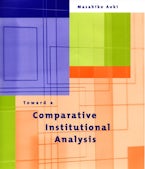Questions addressed include: What are the market failure rationales for, and appropriate form of, government intervention? What does theory show about competition in the presence of a market failure and the implications of government intervention to correct that failure? What do empirical analyses indicate about our regulatory experience and the direction of future intervention?
Departing from the traditional emphasis on institutions, this text emphasizes the use of economic theory and empirical analysis to understand regulatory and antitrust policies. Questions addressed include: What are the market failure rationales for, and appropriate form of, government intervention? What does theory show about competition in the presence of a market failure and the implications of government intervention to correct that failure? What do empirical analyses indicate about our regulatory experience and the direction of future intervention? The third edition addresses many issues that have recently dominated the economic and political landscape. New material reviews the government's case against Microsoft, charges of anticompetitive pricing in NASDAQ and airlines, the blocked Staples-Office Depot merger, and the Telecommunications Act of 1996. This edition also covers the deregulation of the California electric power industry as well as recent deregulatory efforts in bank branching and natural gas transmission. On the social regulatory scene, it covers in detail recent cigarette litigation and the contentious issue of the contingent valuation of natural resource damages, as exemplified in the Exxon Valdez oil spill. New empirical evidence appears throughout the book. Each part of the text can be used separately for a variety of courses including regulation and antitrust in undergraduate institutions, business schools, and schools of public policy, as well as background for doctoral courses. Exercises are included at the end of each chapter.












